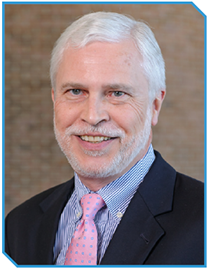
Bill Andreen is the Edgar L. Clarkson Professor of Law at The University of Alabama. He received his law degree from Columbia University School of Law and has an interest not only in climate change and water management, but also in numerous aspects of law such as administrative, environmental (both domestic and international), environmental federalism and all aspects of water pollution law.
“I was somewhat interested in environmental protection back in law school because of the state of our nation’s water and air,” said Andreen. “I really got interested in it after law school when the law firm I was working for assigned me to an environmental assessment case dealing with the construction of MARTA in Atlanta. After two years of private practice, I joined the U.S. Environmental Protection Agency. I was soon assigned to all kinds of defensive cases and ended up doing a lot of water pollution work, as well as some air pollution and hazardous waste work. When I left EPA in 1983, I came to the University where I have taught environmental law and administrative law ever since.”
Andreen’s current projects involve writing articles and updates on various water topics, such as the long-running legal battle between Alabama, Georgia and Florida over the Apalachicola-Chattahoochee-Flint River Basin and the struggle between Alabama and Georgia over the waters of the Alabama-Coosa-Tallapoosa River Basin. He is also working to complete a comprehensive history of water pollution control in the United States. He has already published two articles in that series, which cover developments up to 1972 and the passage of the Clean Water Act. Once the series has been completed up to the present day, he hopes to revise and expand upon this work in book form.
“I also do work on nonpoint source pollution, environmental flows and the effect that climate change will have on both. The ultimate goal is to encourage people to support strong and vigorous environmental protection and enforcement of our standards,” he said.
To assist with his projects, he is a member of the Center for Progressive Reform, a virtual think tank of approximately 60 law professors. They collaborate and develop white papers and other publications on a wide variety of environmental and safety issues. Currently, he is part of a group that is working on the contours of new climate change legislation. For future projects, Andreen plans to focus more on administrative law.
“I suppose that’s not water per se, but it does have a lot to do with how the courts view agency action,” he said. “I do plan to write more about judicial deference to agency interpretations of statutes and also address environmental federalism, which deals with the relationship between the EPA and state agencies.”
Andreen’s expertise also reaches across the world. He serves as the director of the Joint Summer School Project with the Australian National University, a program he founded in 2001. ANU sends 10 law students to UA during the spring semester, and 10 students from UA are sent to Australia in the summer. Both institutions host the students for five weeks, as well as a professor from the visiting university.
“One thing that is really unique about the program is that students from both schools are present in the classroom when the comparative law class is taught – both here and in Australia,” he said. “This allows for more interaction, more interchange and more learning about the culture of each nation. It’s a very well-rounded program.”
Andreen would like to see more interdisciplinary work take place on this campus – more of a fusion of science with law and policy.
“One would hope that what we learn and understand from the natural and social sciences actually gets applied in law and policy,” he said. “Today, we are seeing an example of the EPA turning its back on science in its new rule making on the extent of waters of the United States. The new rule actually ignores hundreds of peer-reviewed pieces of literature indicating that intermittent and ephemeral streams are connected to perennial streams. If you pollute an ephemeral or intermittent stream, you are causing damage to the biological, physical and chemical integrity of downstream navigable waters. The current administration is trying to write intermittent streams and ephemeral streams out of the definition, which is really pretty awful.
“It’s a sad day, but there is hope. I was recently looking at a Gallup poll that reports that 62 percent of Americans believe the government is currently doing too little to protect the environment. It’s the highest in 12 years and likely reflects the current administration’s attacks on strong environmental protection. The only time that figure was higher was in 1992.”